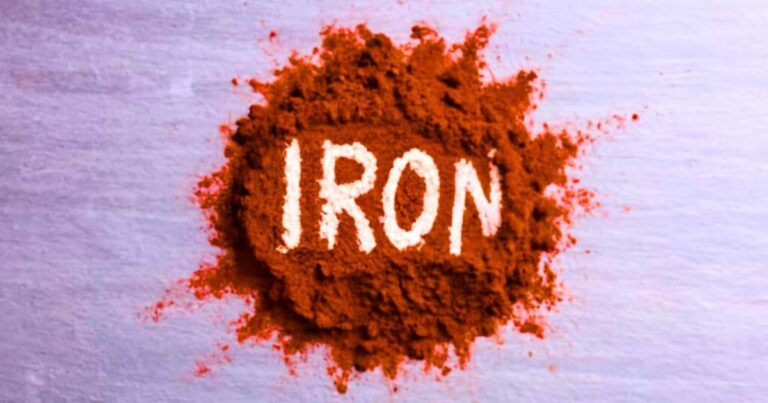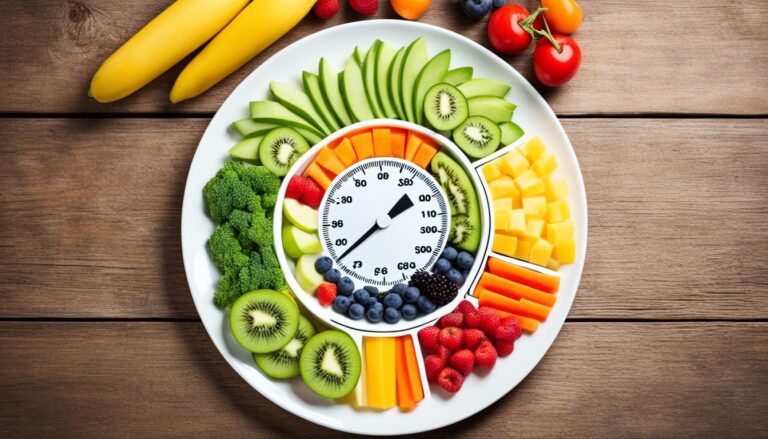What’s the best way to lose weight and keep a healthy lifestyle? With so many diets out there picking the right one can be tough.
A healthy lifestyle means more than just losing weight. It’s about staying healthy and feeling good overall. By looking at the latest studies and expert advice we can find the best diet for losing weight.
Understanding the Importance of Weight Loss
The Mayo Clinic says the best diet for losing weight is both healthy and easy to stick to. This method focuses on making changes that last, not just quick fixes. By choosing a diet that’s good for you and easy to follow you can reach your weight loss goals. This leads to a successful weight loss journey and a healthier life.
Key Takeaways
- A healthy lifestyle is key for losing weight and feeling well.
- The best diets for losing weight are healthy and easy to follow.
- Changing your lifestyle for the long term is important for weight loss.
- Eating a variety of foods from all groups can help you live a healthy life.
- Expert advice and new research can show us the best diet for losing weight.
- Staying on a diet for the long term is essential for successful weight loss.
Understanding the Science Behind Weight Loss
Weight loss is a complex process that involves a healthy diet and regular workouts. The Mayo Clinic says weight loss happens when you burn more calories than you eat. This creates a caloric deficit. You can achieve this by eating fewer calories, exercising more or doing both.
A healthy diet is key for weight loss. It gives your body the nutrients it needs while keeping calorie intake low. A workout routine that includes cardio and strength training also supports weight loss and health. Remember metabolic factors like metabolism and hormone regulation are also important for weight loss.
When trying to lose weight, consider these factors:
- Caloric intake reducing daily caloric intake to create a caloric deficit
- Physical activity increasing energy expenditure through regular exercise
- Metabolic factors understanding how metabolism and hormones affect weight loss
By understanding the science behind weight loss, you can make better choices about your diet and workouts. This increases your chances of achieving and keeping a healthy weight.
Which Diet Is the Most Effective in Weight Loss?
When it comes to weight loss, the best diet is one that fits your needs and likes. The Mayo Clinic says a healthy diet should have lots of whole foods. This includes fruits veggies, whole grains and lean proteins. By picking a diet that’s good for you and easy to stick to you can reach your weight loss goals and get healthier.
A good diet considers your lifestyle, what you like to eat, and your health goals. For instance the Mediterranean diet is known for being great for weight loss and health. It focuses on whole foods and cuts down on processed foods.

Other diets that work well for weight loss include low-carb diets like Atkins and keto, and high-protein diets. These diets help you eat fewer calories and feel fuller. But it’s key to pick a diet that you can keep up with for the long haul. This makes it more likely you’ll lose weight and stay healthy.
The Mediterranean Diet A Sustainable Approach to Weight Loss
The Mediterranean diet is known for its health benefits, like weight loss and lower heart disease risk. It focuses on healthy food like fruits, veggies, whole grains, and lean proteins. Following this diet helps people lose weight and get healthier.
Regular exercise is also key for losing weight. The Mediterranean diet suggests 30–60 minutes of activity daily, or 22 to 44 minutes plus two strength workouts a week. You can do this at the gym or through other activities that boost nutrition and health.
- Daily consumption of fruits vegetables, whole grains, and legumes
- Weekly consumption of nuts and healthy oils
- Limiting red meat and processed foods
By sticking to the Mediterranean diet and staying active, you can lose weight in a healthy way. This method not only works well but also improves your overall health and happiness.
The Role of Ketogenic Diets in Fat Loss
The ketogenic diet is great for losing fat, says the Mayo Clinic. It works by cutting down carbs, making the body use fat for energy. This leads to weight loss. The diet limits carbs to under 50 grams a day, sometimes as low as 20 grams.
For this diet, you should eat about 70-80% fat 5-10% carbs, and 10-20% protein. On a 2000-calorie diet, that’s 165 grams of fat, 40 grams of carbs, and 75 grams of protein. Adding exercise to a ketogenic diet can help with fat loss and health.
Some good things about the ketogenic diet include:
- Improvements in insulin resistance
- High blood pressure reduction
- Elevated cholesterol and triglycerides reduction
But the ketogenic diet can have side effects. One is ketoacidosis a serious condition from too many ketones. Yet with the right guidance it can be a good way to lose fat and get healthier. This is true, as long as you also do regular exercise.

Read more: Ketogenic Diet What to Eat and What to Avoid
Intermittent Fasting Timing Your Way to Weight Loss
Intermittent fasting is a method that can help with weight loss says the Mayo Clinic. It involves eating only during certain times. This can lead to weight loss and better health. You can try the 16:8 or 5:2 methods to start.
A healthy lifestyle is more than just losing weight. It also means staying active with regular workout routines. Intermittent fasting fits well into this lifestyle because it’s flexible. It can even lower blood pressure and heart rates, making it a good choice for a healthy lifestyle.
Here are some benefits of intermittent fasting:
- Weight loss
- Improved blood pressure
- Increased human growth hormone HGH levels
- Improved insulin sensitivity
But, intermittent fasting isn’t for everyone. It’s not good for kids, teens, pregnant women or people with type 1 diabetes. Always talk to a doctor before starting any new diet or workout plan even if you’re healthy.
Plant Based Weight Loss Strategies
Plant-based diets are great for losing weight, says the Mayo Clinic. They focus on whole foods like fruits veggies grains and legumes. This helps with weight loss and lowers disease risk. A study in Frontiers in Nutrition found that fresh fruits don’t add extra calories or fat helping avoid being overweight.
Nutrition is key in plant-based diets. They offer all needed nutrients for health, like protein fats and carbs. For example tofu has 63 calories per 3 ounces while chicken breast has 122. Almond milk has 37 calories and 3 grams of fat compared to cow’s milk with 122 calories and 4.6 grams of fat.
Some healthy food choices for plant-based diets include
- Leafy greens such as spinach and kale
- Cruciferous vegetables such as broccoli and cauliflower
- Legumes such as lentils and chickpeas
- Whole grains, such as brown rice and quinoa
Adding these foods to your diet can help you lose weight and get healthier. A study showed people lost 13 pounds in 14 weeks. They kept 11 pounds off after a year.

Read more: Diet Over Exercise The Key to Beating Obesity
Combining Diet with Exercise for Optimal Results
A good workout routine is key for the best weight loss. Adding regular exercise to your life boosts weight loss and health. A healthy diet and exercise together can lead to big weight loss and better health.
Studies show that adults with obesity who did strength and endurance exercise for 175 minutes a week, plus a special diet lost the most weight. This shows how important it is to use both diet and exercise for weight loss. A healthy lifestyle with exercise and a balanced diet greatly improves health and happiness.
To keep your heart healthy, aim for 150 minutes of moderate exercise or 75 minutes of high intensity exercise weekly. Regular exercise can lower blood pressure and bad cholesterol, improve heart health, and reduce diabetes risk. A healthy lifestyle and regular workout routines can greatly benefit your health and life quality.
Common Weight Loss Mistakes to Avoid
Reaching and keeping a healthy weight needs a healthy lifestyle and smart nutrition plans. Yet, many people make errors that slow down their progress. The Mayo Clinic says it’s key to dodge these mistakes for lasting weight loss.
Some common blunders include skipping breakfast, snacking without thinking, and eating low fat foods without watching portion sizes. Studies show that eating breakfast daily can help keep a healthy weight. On the other hand snacking without control can ruin weight loss goals.
Also low fat foods can be calorie-rich if not eaten in moderation.
To steer clear of these errors, here are some tips:
- Start your day with a balanced breakfast to manage hunger and portion sizes all day.
- Plan and track snacks to prevent mindless eating and make sure they’re full of nutrients and low in calories.
- Opt for whole, unprocessed foods as much as you can, and pay attention to how much you eat.
By knowing these common mistakes and avoiding them, people can live a healthy lifestyle and achieve lasting weight loss. Always drink plenty of water, exercise regularly, and aim for a steady weight loss of 1-2 pounds each week.
Conclusion Creating Your Sustainable Weight Loss Journey
Reaching and keeping weight loss goals needs a lasting plan. This plan should focus on good food and regular exercise. It’s important to avoid quick fixes and aim for lifestyle changes that last.
To start a lasting weight loss journey, aim to lose 1 to 2 pounds each week. This means burning 500 to 750 calories more than you eat daily. Eat lots of veggies, fruits, and whole grains but cut down on refined carbs.
Do at least 30 minutes of aerobic exercise most days. Also, do strength training twice a week. Mindful eating and enough sleep help too. Remember, lasting weight loss is about living a healthy lifestyle not just losing weight.





